Toson Antwan Knight helps young men get back on track in life; no matter their background
Knight is the founder of the nonprofit mentor group Caught Up and has changed more than dozens of young men’s lives in the metro Detroit area. Knight understands that being a mentor is a big responsibility, but having a mentor growing up can be life changing. He wants to be that life changer for a young man who’s ready and willing to change but doesn’t know how.
Read more about Knight in Episode 18 of People You Should Know.
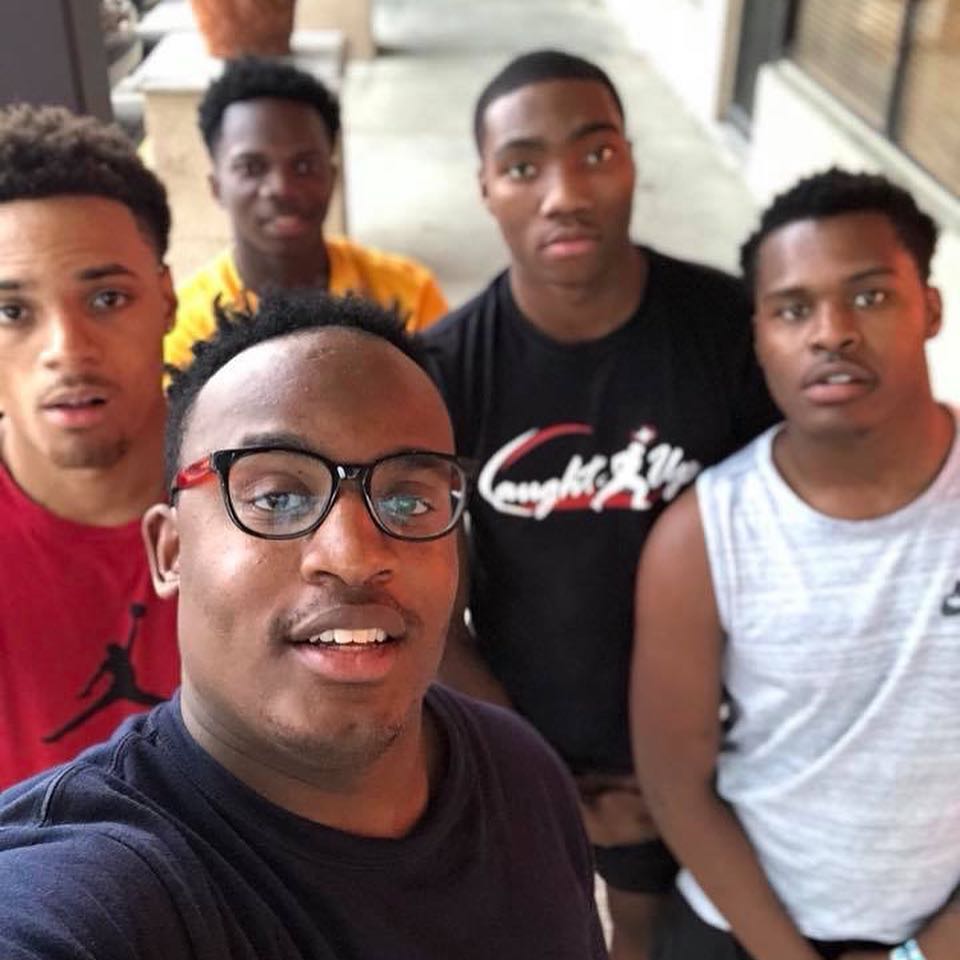
1. What made you want to start Caught Up?
I would say the biggest thing was growing up without a father, growing up without a father figure it kind of gave me like “man I wish I had that when I was younger”. So when I went to Oakwood University and I had people that looked out for me, like Mrs. Yolanda Adams who just really cared for me and helped me. So that made me want to give back, and of course, at Oakwood they teach you ‘Enter to learn, depart to serve’. So that gave me this idea that I need to return to back to Detroit, I need to help, I need to do my part, and give people what I didn’t have.
2. Why do you think it’s so important to pour hope, love and guidance into our black male youth along with opportunity and support?
I think a lot of them are depressed and go through a lot because they don’t have families that support them like they should. So I think it’s important to show them that people care about you, people want you to be successful, people will invest in you but you have to want it for yourself as well. So I think, again going back to my first answer, they go through a lot, they don’t have that male figure – a lot of them – in their life or even that person that they think cares about them.
3. Do you feel like you have to break down walls when it comes to getting your mentees to trust you and the program since they don’t regularly have relationships with a man?
Most of the young men that come to our program is voluntary. If they don’t want to be in it, I don’t try to force them. So most of the kids that I get connected with is through word-of-mouth. Now sometimes, and something that I’ve had some success with, is parents bringing their kids to me. And again like I said it’s not a lot of success because I’m not going to beg you. It’s too many other kids that really want it. So I’ll wait until you hit rock bottom and want to come back and that’s fine, but I’m not about to convenience you or beg you to be part of the program.
4. Your nonprofit has several programs including: project re-entry, Saturday night live, project empower, weekend retreats, and college. Can you share a little bit about each program and how they impact the mentees overall?
The Project Re-entry is actually the first thing that started Caught Up really. So I used to work at a juvenile center when I was 18, maybe 19, but what I would notice is that the individuals who went to this juvenile center when they got out – and they would go there for many types of issues like armed robbery, sexual assault, some even murder – if they didn’t have anyone to depend on or go to a lot of them got stuck back in their same environment and they would end up getting in worse trouble or getting killed. So my goal was, when I was working for the (Detroit) Mayor, how about I connect these individuals with successful people. My goal was to go in and help them transition back into the community. So the last 8 weeks they’re incarcerated we go in with different things like resume building, how to find a job, is college for you, trade skills, and just kind of show them different avenues they have. We bring in people that’s been in their shoes before and it’s kind of like ‘Look this is what we’ve been doing’. When they get out we try to help them find a job, find a school to go to, if they need a ride to an interview we’ll look out for them as best we can.So, that’s Project Re-entry. We work with the incarcerated juveniles in that program and help them transition back into the community.
Saturday Night Live is simple: basketball, food, and life skills. Right now we’re on a curriculum about manhood so we’re talking about that and just kind of going from there.
Project Empower, I would say, has not really been going like it has in the past. It used to be in schools, but I’ve been too busy to run that program. But something I wanted to say is that we have a new thing called One-on-one mentoring; like assigning them a mentor. People to check on them in school, people to take them out to eat, (and) help pay for things. What we learned is that that has the most effect because they’re being around someone on a consistent basis that they can look up to and that they’re accountable to. I love that program and love the one-on-one piece.
The Youth Retreat we do every year. We look forward to doing it every year. It’s basically a weekend where we have a lot of speakers come in and talk to them about different issues and they’re away from the city; like 3 hours away at a very nice facility. They love it and we have a good time up there! It’s basically speakers coming in to empower them for that weekend. Our last theme was: Overcoming Adversities. That was like trying to overcome issues that you’ve been going through and how to you stay strong. So we brought in different speakers to talk to them about their issues. They’ll be able to play sports, stay in the dorms, and create a bond with each other so they really love that program.
Our goal is to get kids in college. So whatever college they might go to, most of them go to Oakwood (University). We’ll help them get into the school, walk them through the financial aid process. Also, help them with scholarship programs, help them fill out scholarships and essays. Then our goal is to help them through college. So when they get into the school we’ll take them, we’ll get them the necessities that they might need to stay focused and things like that.
5. Many of your “kids” (a name you frequently use for your mentees) that were once considered a menace to society now live productive lives. How does it feel to know that you played a significant role in their life’s transition?
You know that’s a good question I think about a lot of times. I think how are they progressing, and one of the things we were talking about is like….cause sometimes I beat myself up like ‘Man, were not having enough progress’ or ‘they’re not doing what they need to do all the time’. Somebody broke it down to me that if they were back in Detroit or they weren’t in this program they might be doing some other stuff; they might be in worse predicaments. I have high standards for all of them, and I kind of want them to be real perfect real soon. So it’s like a lot of times I don’t look at it as ‘Oh they’re doing great’ , but like look at the whole scene and where they’re coming from and how they’re changing. A kid was just saying this past Saturday at the program that his whole mindset has changed saying, “Before where I would want to fight I don’t want to do so anymore.” And I’m like wow I didn’t even think of it like that, but I understand how the program can have that impact. I just want to see them move forward like ok what’s next? You going to college? I don’t want you sitting around. You going to get a job? What’s going to happen next? So that’s my goal, to move them forward. But I love seeing the impact that it’s having on the community overall and changing lives. It’s a blessing for sure.
6. Caught Up unexpectedly lost mentee Carvell Goodlow on September 16, 2018 to gun violence while attending college in Alabama. How did his sudden death affect both you and your other mentees?
That was rough. It was a very devastating time for me and my kids. You know having to tell his mom, because I got the phone call from the detective and I had to go tell his mom that morning, that was a lot and it took a lot out of me. When it first happened I kind of stepped back like I don’t know if I can continue to do this, and over time I’ve been able to overcome and make sure that we’re still doing our program. It was very tough to go through that. I felt like I lost one of my own kids. Then the mentees, I was at the Youth Retreat about a month ago and they were talking about the effect it still has on them. You can tell a lot of them are still emotional about it, and a lot of them were right there so it really affects them a lot as well. A lot of them are in therapy and talking about it to people as well; something I didn’t even do. That’s how they deal with it. Oakwood has provided them a lot of therapy and things like that to help them process it.
7. Your nonprofit requires a lot of your time. You take kids to Piston games, speaking events, and even check on them by driving to their different colleges on the weekends. How do you balance your personal life, work life (as Dean of Culture and Climate for Detroit Public Schools), and business life?
When I’m at work, I feel like I’m kind of doing the same work, I just don’t do it officially (for Caught Up). So it’s kind of cool, but I mean how do I balance everything like church, school, mentoring? It’s crazy! What I do is I try to integrate. Everything that I do with my kids I try to bring them around. It was so much easier with the Mayor’s office because l had a such a free schedule, I could do whatever. It’s harder working at a school because you’re at a set place. So we have certain days that we meet with our kids, so Wednesdays, Thursdays, and Saturdays and I just keep to those days. Then I have certain kids that want to come around more so we’ll just work with those kids as well, that’s where our one-on-one mentoring comes in when we have time. Basically we have certain days that we meet with them. On Sunday is the Project Re-entry program, on Wednesdays and Thursdays is a program we do with them called the Brotherhood and that’s like in collaboration with the (Detroit) police department. It kind of takes a load off because all I have to do is show my face and talk to them. So that’s pretty cool, but it’s hard to balance that schedule, and it’s proven to be very hard. That’s why I do things having a calendar, and do other stuff to balance my schedule out and to set my time up differently. It’s very hard for sure.
8. What keeps your passion going for Caught Up when the days are long and rough?
When you see young people that are changing and doing better, it gives you the energy to go on. I was just thinking this weekend, we see more kids that hear about the program and they’re like ‘Yeah, I want to be part of this’ and ‘I really need help and I really need to change’ and they’re willing to change. That’s what helps me stay strong and keep going. It’s definitely a lot of work and time consuming for sure.
9. For years you’ve worked with these young men closely and gained insight into their world and the daily challenges that they face. How can individuals mimic this type of support to help one or two young black males they want to mentor?
That’s how I started. I started with my little brothers and their friends. Doing small stuff like taking them to go see a $1 movie, going to play basketball with them, checking on them in school. It’s those small things that take like 30 minutes, maybe an hour out of your day once a week. So simple stuff like that I think this is helpful for someone that wants to get involved. Don’t think of it as such a time issue. For me, of course, it’s a huge time commitment. But for most people you just grab one or two people. It’s just about texting them, checking on them, making sure they’re good, and also making sure you spend time with them. So like one day out the week you take them to go see a movie, take them to a basketball game. I was making a joke to somebody that that summer between graduating high school and going to college, I remember taking them to see the Pistons. The Pistons were doing really well then, so it was like years ago, and they made it to the finals so we would have watch parties and stuff. I was doing that and they loved it and it didn’t cost, it was free. I just tell people that’s simple stuff that you can do to try and spend time with them. It doesn’t cost a lot of money to spend a few hours with them a week.
10. What is your long-term goal with Caught Up?
My goal is to get a center where kids could come to after school, play basketball, learn about things, get tutoring, and more. Not really all Detroit, but just on the east side of Detroit. I don’t have this large scale thinking, which a lot of people tell me I should expand it to every city, and I’m not opposed to it but I want to make sure what I’m doing here is working and it’s working to a perfection. I know it takes a lot of passion to do this work so everyone can’t do it. But overall I see this program in 15 years having its own center, working with all the kids on the east side, and really making an impact in the community. That’s what I see for Caught Up.
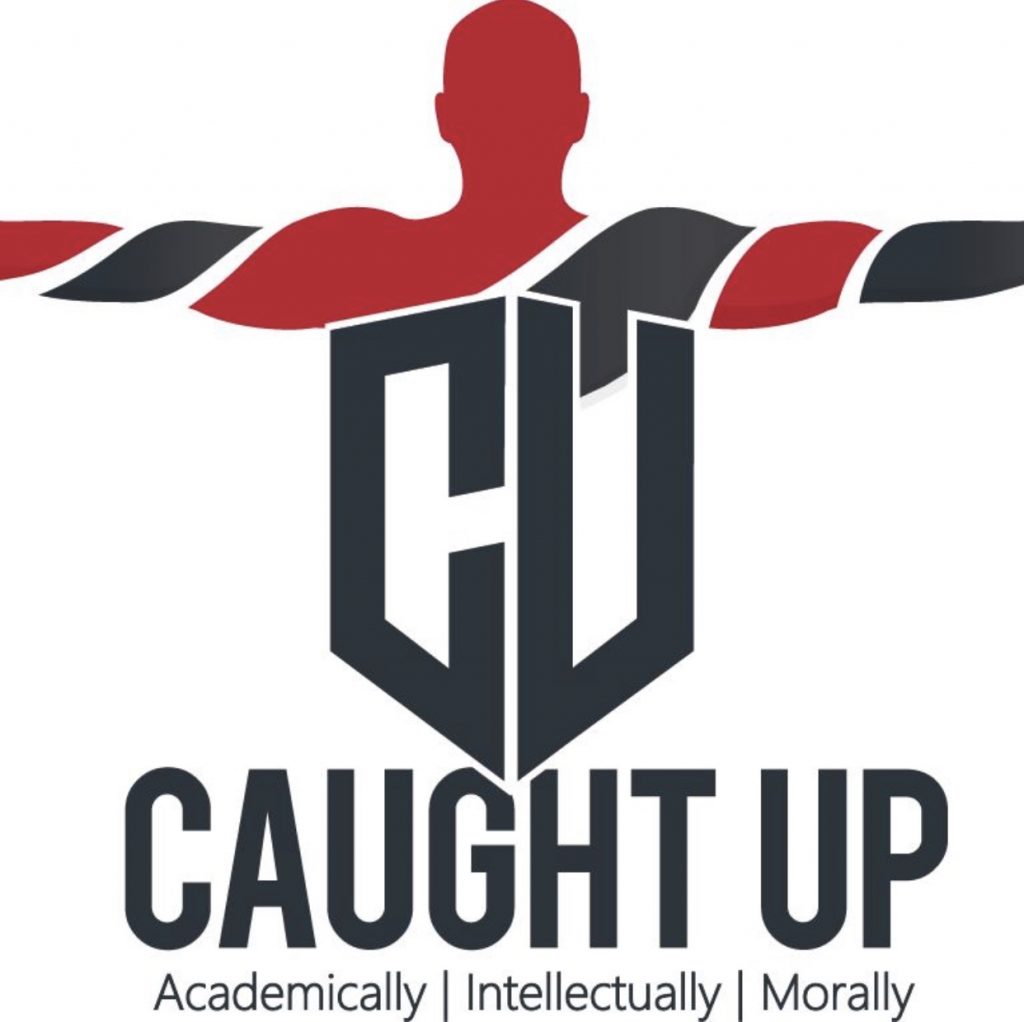
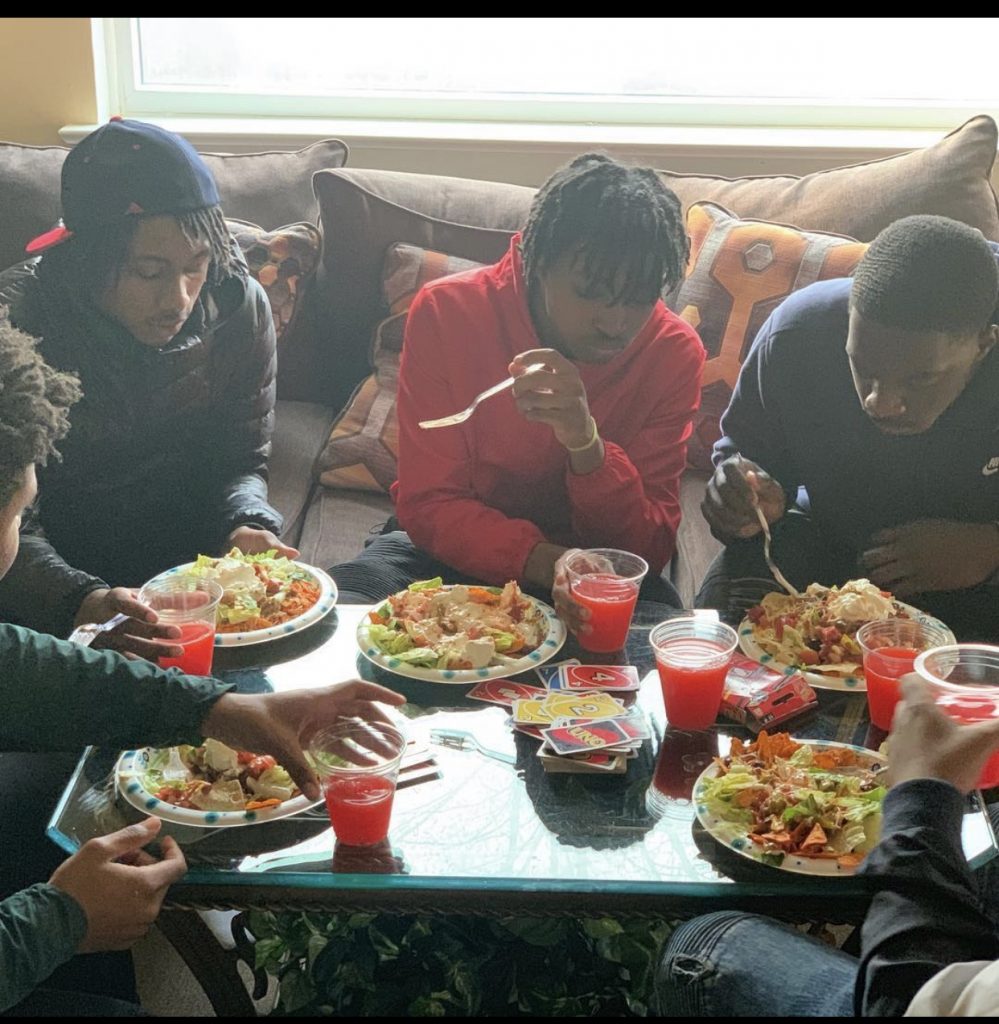
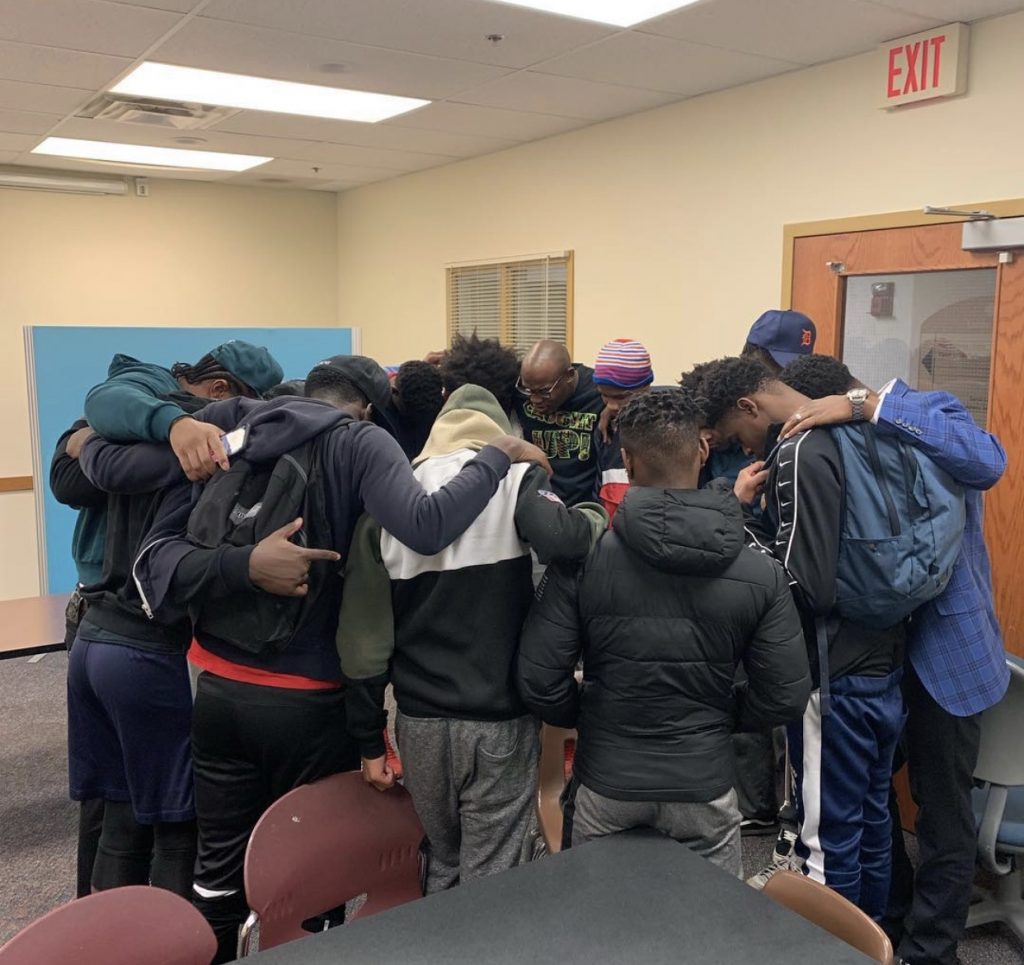
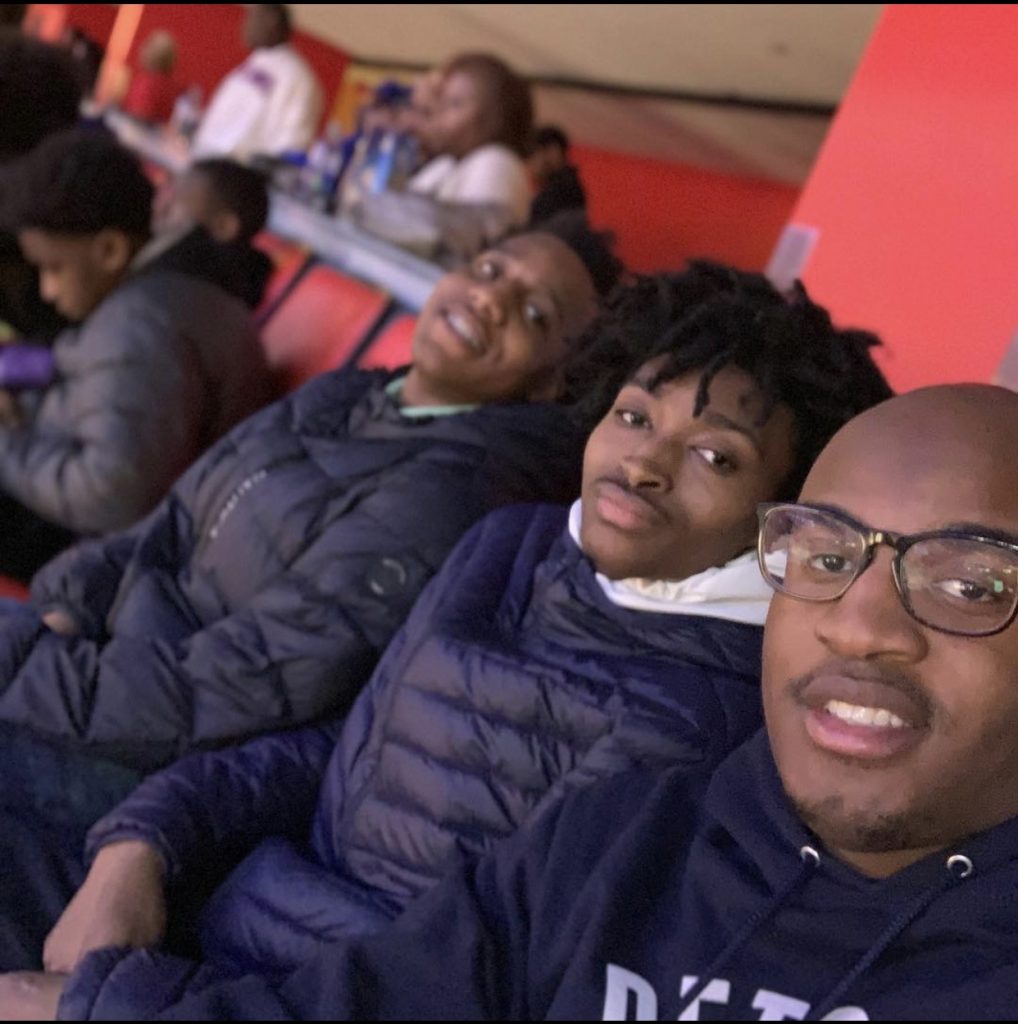
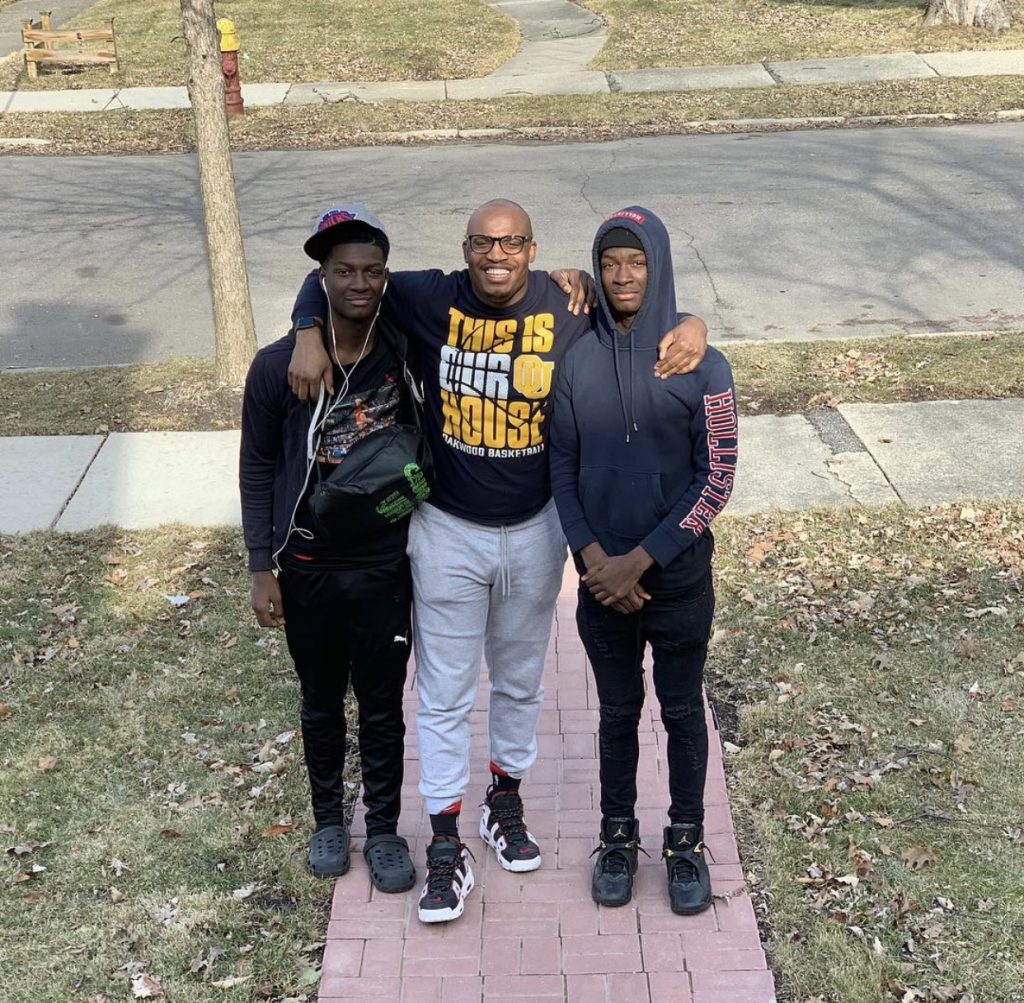


0 responses to “Toson Knight: Mentor & Educator (Ep. 18)”